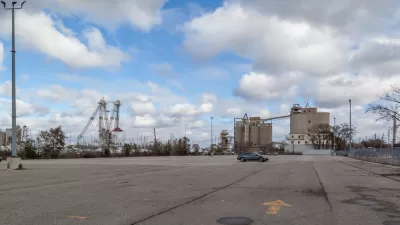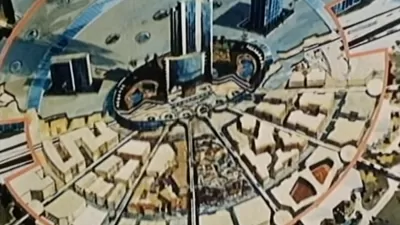The 'smart city' concept fails to take into account the necessary slowness of democracy and the unpredictability of a city's human inhabitants.

In an excerpt from her book A City is Not a Computer, author Shannon Mattern argues that the 'smart city' concept touted by Google's Sidewalk Labs and other technologists has not lived up to its promises, in part because the "move fast and break things" mentality typical of big tech runs up against the sometimes glacial pace of civic bureaucracy.
In an example from Toronto's Quayside project, the Sidewalk team "encountered, through the design process, the (often productive) slowness and friction of government bureaucracy and democratic deliberation." In the end, "[a]fter a long, messy process plagued by controversy over financing, governance, data privacy, and a host of other concerns, [CEO of Bloomberg LP Dan] Doctoroff took again to Sidewalk Talk in May 2020 to announce that the Quayside project was pulling the plug." According to local Sidewalk critic and public technology expert Bianca Wylie, "[w]hile the failure is certainly due in part to a changed world … this explanation brushes under the rug years of sustained public involvement in the project, from supporters and critics alike. From its inception, the project failed to appreciate the extent to which cities remain strongholds of democracy" and how the unpredictability of the human element makes it impossible to 'program' a city.
"[S]mart technologies often furnish convenient stopgap solutions; they provide a quick, and often lucrative, targeted fix that absolves leaders of the responsibility to investigate and resolve the root causes for health and racial injustices and systemic breakdowns." But while "Silicon Valley moves fast and breaks things," writes Mattern, "cities, if responsibly designed and administered, can’t afford such negligence—even if multiple converging crises seem to necessitate the rapid prototyping of urban solutions."
FULL STORY: Why high-profile smart cities fail, from Sidewalk’s Quayside to Amazon’s HQ2 in Queens

Maui's Vacation Rental Debate Turns Ugly
Verbal attacks, misinformation campaigns and fistfights plague a high-stakes debate to convert thousands of vacation rentals into long-term housing.

Planetizen Federal Action Tracker
A weekly monitor of how Trump’s orders and actions are impacting planners and planning in America.

In Urban Planning, AI Prompting Could be the New Design Thinking
Creativity has long been key to great urban design. What if we see AI as our new creative partner?

Cal Fire Chatbot Fails to Answer Basic Questions
An AI chatbot designed to provide information about wildfires can’t answer questions about evacuation orders, among other problems.

What Happens if Trump Kills Section 8?
The Trump admin aims to slash federal rental aid by nearly half and shift distribution to states. Experts warn this could spike homelessness and destabilize communities nationwide.

Sean Duffy Targets Rainbow Crosswalks in Road Safety Efforts
Despite evidence that colorful crosswalks actually improve intersection safety — and the lack of almost any crosswalks at all on the nation’s most dangerous arterial roads — U.S. Transportation Secretary Duffy is calling on states to remove them.
Urban Design for Planners 1: Software Tools
This six-course series explores essential urban design concepts using open source software and equips planners with the tools they need to participate fully in the urban design process.
Planning for Universal Design
Learn the tools for implementing Universal Design in planning regulations.
Appalachian Highlands Housing Partners
Gallatin County Department of Planning & Community Development
Heyer Gruel & Associates PA
Mpact (founded as Rail~Volution)
City of Camden Redevelopment Agency
City of Astoria
City of Portland
City of Laramie




























